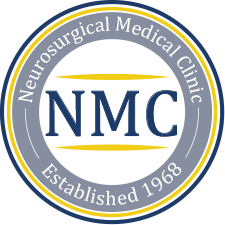Medical Tests & Imaging
After reviewing your medical history and completing your examination, your provider may recommend additional tests to help with diagnosis and treatment planning. If a test is needed:
📌 We’ll explain the test and answer any questions you may have.
📌 Our team will help schedule it and verify insurance authorization if required. We also recommend checking with your insurance provider for confirmation.
📌 We’re here to help! If you're unsure about a test or what to expect, just ask—we want you to feel comfortable and informed.
Below are some of the most common tests we may recommend:
X-ray
X-rays use radiation waves to create images of bones, organs, and tissues. They are especially helpful for evaluating bone alignment and detecting fractures or abnormalities.
MRI Scan (Magnetic Resonance Imaging)
An MRI uses a magnetic field and radio waves (instead of radiation) to produce detailed images of the body’s soft tissues, brain, and spine. It is a non-invasive test used for diagnosing a variety of conditions.
CT Scan (Computerized Tomography)
A CT scan is a special type of X-ray that creates detailed 3D images of the body. It is often used to guide surgeons in complex procedures and to assess conditions affecting the spine and brain.
Myelogram
A myelogram is a special type of X-ray where a dye is injected into the spinal canal to provide a detailed view of the spinal cord and nerve roots. It is useful for diagnosing herniated discs, spinal injuries, or tumors
Angiogram
An angiogram evaluates blood flow in the arteries and veins of the head, neck, and brain. A doctor inserts a small catheter into a major artery, injects a contrast dye, and takes X-rays to detect issues like narrowed arteries or aneurysms.
Electromyography (EMG)
An EMG measures the electrical activity of muscles to help identify nerve or muscle disorders. It is commonly used to diagnose conditions related to the brain, spinal cord, or peripheral nerves.
Nerve Conduction Study (NCS)
NCS evaluates how well electrical signals travel through your nerves. It is often used to diagnose conditions like carpal tunnel syndrome, peripheral neuropathy, and ulnar neuropathy.
Epidural Steroid Injection
This procedure involves injecting a mix of cortisone and local anesthetic into the spine to reduce inflammation and relieve pain caused by conditions like herniated discs, bone spurs, or spinal narrowing. This is typically done by a pain management or physical medicine and rehab physician.
If you have any questions about these tests or procedures, please don’t hesitate to ask! Our team is here to support you every step of the way.

